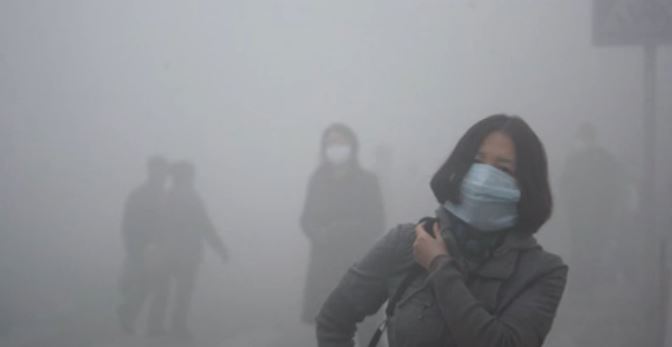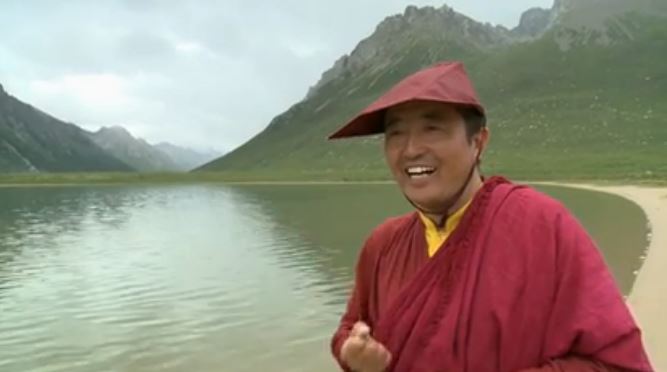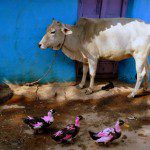PBS takes us to China this week, where the increasing signs of environmental degradation are leading many in this officially ‘atheist’ nation to embrace Buddhism. Buddhism is on the rise in China, currently estimated to have about 200-300 million adherents, for a variety of reasons. After the extreme persecution of the Cultural Revolution in the 1960s and 70s, the nation slowly and quietly allowed some cracks to form in its atheist and socialist facade. Over the last twenty years especially, the force of expanding capitalism has been accompanied by individual freedoms of movement, education (as countless young people have traveled to the US and UK especially for higher education), and finally, religion. In this time there has been a rapid rise in the practice of Christianity, often in underground ‘home churches’, a more official and open re-valuation of Confucian ideals, and a return of Buddhism, including that of Tibet with its emphasis on the development of the twin virtues of wisdom and compassion.
Even high officials in the Communist Party have recognized the beneficial moral teachings of Buddhism in a time of increasing wealth, consumerism, and spoiled single-children. Martin Palmer, who had spent nearly two decades trying to get religious groups to take up environmental conservation, was invited in 2006 to speak with the minister for the environment and the minister for religion, “They said the single-child policy has created the most selfish generation in China’s history, because each child has been brought up as the center of attention for the family. Nothing is too much to give to them. And these two Communist Party officials said we want the religions to help us bring compassion back.”
Bringing us to Tibet, PBS interviews a monk named Tashi Sangye:
My grandmother taught me that I shouldn’t wash my hands or pee in the river or make it dirty. I said why? They told me there is a dragon god. I asked them what the dragon god looks like, and they said, “Don’t say it, don’t say it. You will know when you grow up.” Mama and papa told me in secret that this is a sacred lake. But they said, “Don’t ever talk about it openly,” because we couldn’t talk about gods. They do not exist in the Communist Party’s eyes; they are superstitions. If anyone talked about a god they would be beaten, so we wouldn’t dare to say it. But through thick and thin in a country that’s seen so much political upheaval and social change, those fundamental values have endured, he says.
Who will protect the environment? In the West and in China, it’s the government’s responsibility. But the Tibetans don’t think this way. This is not the Buddhist way. If you think that way you are not Buddhist. You are the protector. No matter if you are a newborn or an 80-year-old, you are all protectors. You are all responsible. You have the responsibility. All life should be protected.
View the whole video here:
(Images are from the video, see their website here)














